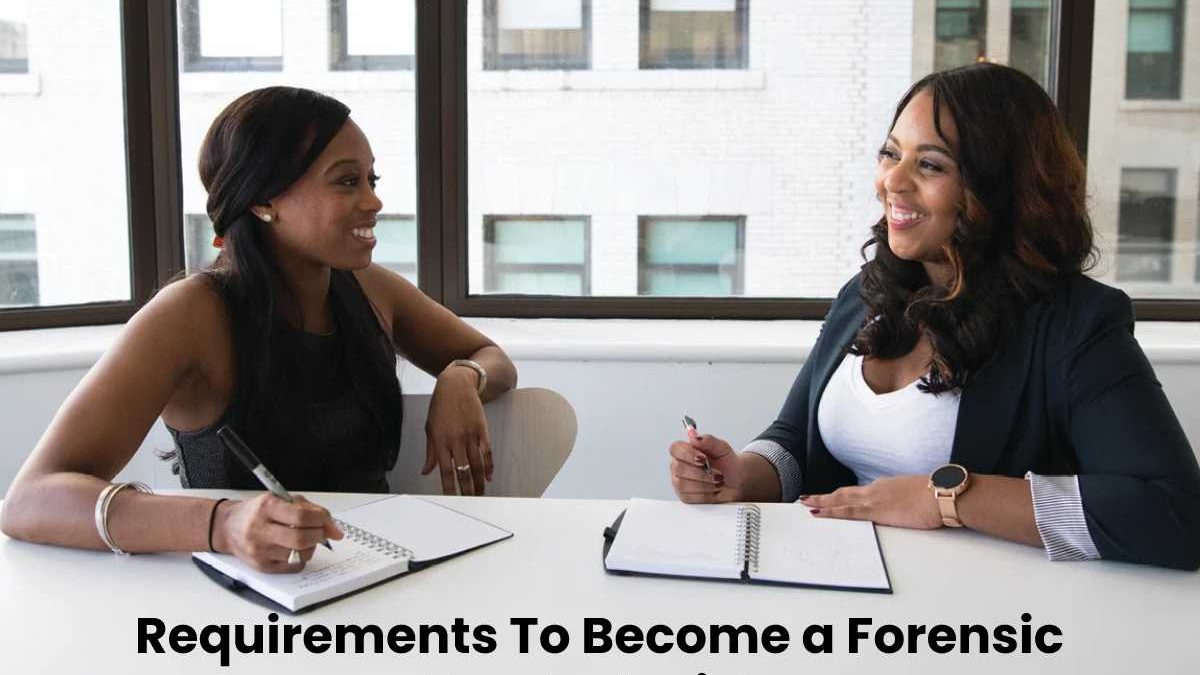Requirements To Become a Forensic Psychologist.
Because of early 2000s crime dramas like “CSI” and “Law & Order,” forensic psychology is now a well-known profession. With an ever-expanding number of podcasts, YouTube channels, and docuseries attracting millions of viewers and listeners, the genre has only continued to soar in popularity.
Why are so many individuals drawn to such a weighty topic? According to Illinois Wesleyan University professor and social psychologist Amanda Vicary, it all boils down to our shared interest in “the inner workings of a killer.”
An occupation in forensic psychology may be for you if you are fascinated by the motivations behind criminal behaviour. However, what does a forensic psychologist do?
Table of Contents
What Is Forensic Psychology?
A relatively recent discipline known as forensic psychology may remain conceived of as the union of psychology and law. Forensic psychologists use their psychology data to help those working in the legal system. It may be relevant to civil or criminal court cases involving litigation, custody battles, killings, or other problems.
Forensic Psychology Salaries
All types of psychologists, such as counselling, developmental, school, and clinical psychologists, are included in the following BLS data.
How Do I Become a Forensic Psychologist?

A bachelor’s, master’s, and a doctorate in psychology remains often required on the road to becoming a forensic psychologist. Most licenced clinical psychologists who work in forensic psychology have also completed the Examination for Professional Practice in Psychology (EPPP).
Education for Forensic Psychologists
A solid basis for pursuing forensic psychology is obtaining a bachelor’s degree in criminal justice, criminology, or general psychology. However, if accessible, several universities now offer bachelor’s degrees in forensic psychology, which is another excellent alternative.
Most aspiring forensic psychologists finish a master’s degree in general psychology, forensic psychology, or psychology with a speciality in law after earning a bachelor’s degree before enrolling in a PhD programme. (To apply to most graduate schools, you must complete the GRE with a specific score.)
You could find doctorate programmes that let you apply immediately after receiving your bachelor’s without going to graduate school. While bypassing a master’s degree will save you time and money, going the additional mile can help you improve your GPA, prepare for the difficulties of your PhD studies, and improve your résumé. You might be able to get into more selective colleges as a result.
Licensure for Forensic Psychologists
To become a forensic psychologist, which necessitates passing the EPPP, you do not need further licencing beyond what remains required for clinical psychologists. To be sure you follow all the appropriate procedures, check your jurisdiction, as these rules may differ from state to state.
Forensic psychologists must be board certified.
A speciality board certification in forensic psychology is available from the American Board of Professional Psychology (ABPP). Although most companies do not need this, it distinguishes you from the competition and shows a firm grasp of the field’s norms.
You must be eligible for the ABPP to pursue this certification. After that, you can take the written and oral exams, which last three hours.
Pre-Professional Experience for Forensic Psychologists
What sets you apart from ordinary psychologists and qualifies you for forensic psychology roles is the time you spend in your internship, fellowship, or supervised experience in forensic psychology after receiving your doctorate. People often hold these occupations for 1-2 years. Throughout this period, you will acquire the practical knowledge required to work in forensic psychology.
Conclusion
You may anticipate doing research, attending seminars, participating in mock trials, administering violence risk assessments, forensic psychiatric evaluations, determining a defendant’s capacity to stand the test, and other clinical interactions with forensic populations.

